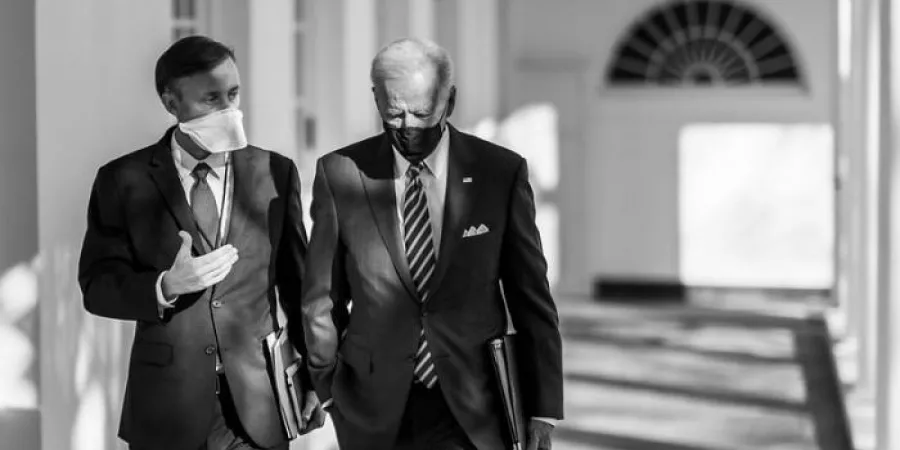US national security advisor meets with head of Israel's National Security Council
Jake Sullivan and Dr. Eyal Hulata met in Washington. Meanwhile, the head of the U.S. Central Command, Gen. Frank McKenzie, and the IDF Chief of Staff, Lieut. Gen. Aviv Kochavi, spoke by phone
Dan Arkin
| 08/08/2021
U.S. National Security Advisor Jake Sullivan and his new Israeli counterpart, Dr. Eyal Hulata, decided during their meeting in Washington several days ago to "consult closely" on the issue of Iran, the White House said in a press release.
The two national security advisors discussed the strategic challenges in the Middle East, including Iranian threats, and decided to consult closely on those issues. Sullivan and his Israeli guest also discussed topics such as advancing Israel's ties with Arab countries as well as stabilization of ties with the Palestinians.
Meanwhile, the head of the U.S. Central Command (CENTCOM), Gen. Frank McKenzie, spoke with the IDF Chief of Staff, Lieut. Gen. Aviv Kochavi, by phone about what CENTCOM called "the region's dynamic security environment". According to assessments, one of the topics discussed was the Iranian attacks on oil tankers in the Persian Gulf. U.S. Secretary of State Antony Blinken said that the U.S. is convinced that Iran carried out the attack on the commercial ship Mercer Street, and that the U.S. has held discussions with Israel, Britain and Romania regarding a collective response.
Iran continues to deny involvement in the attacks on ships. The spokesman of the Foreign Ministry in Tehran described the statements by Washington and London on the issue as baseless.
Jake Sullivan and Dr. Eyal Hulata met in Washington. Meanwhile, the head of the U.S. Central Command, Gen. Frank McKenzie, and the IDF Chief of Staff, Lieut. Gen. Aviv Kochavi, spoke by phone
U.S. National Security Advisor Jake Sullivan and his new Israeli counterpart, Dr. Eyal Hulata, decided during their meeting in Washington several days ago to "consult closely" on the issue of Iran, the White House said in a press release.
The two national security advisors discussed the strategic challenges in the Middle East, including Iranian threats, and decided to consult closely on those issues. Sullivan and his Israeli guest also discussed topics such as advancing Israel's ties with Arab countries as well as stabilization of ties with the Palestinians.
Meanwhile, the head of the U.S. Central Command (CENTCOM), Gen. Frank McKenzie, spoke with the IDF Chief of Staff, Lieut. Gen. Aviv Kochavi, by phone about what CENTCOM called "the region's dynamic security environment". According to assessments, one of the topics discussed was the Iranian attacks on oil tankers in the Persian Gulf. U.S. Secretary of State Antony Blinken said that the U.S. is convinced that Iran carried out the attack on the commercial ship Mercer Street, and that the U.S. has held discussions with Israel, Britain and Romania regarding a collective response.
Iran continues to deny involvement in the attacks on ships. The spokesman of the Foreign Ministry in Tehran described the statements by Washington and London on the issue as baseless.



